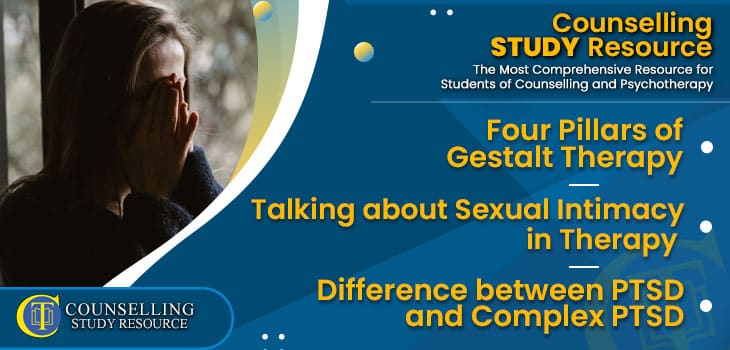See Counselling Skills Used in Real Sessions by Qualified Therapist
Real Sessions – Real Presentations – Real Skills
Gain the competence and confidence to use counselling techniques effectively!

In Episode 251 of the Counselling Tutor Podcast, your hosts Rory Lees-Oakes and Ken Kelly are back with this week’s three topics:
The Four Pillars of Gestalt Therapy
First up this week, listen as Rory and Ken take us through the four pillars of Gestalt therapy:

Real Sessions – Real Presentations – Real Skills
Gain the competence and confidence to use counselling techniques effectively!
Speaking about sexual intimacy may feel uncomfortable for some, but it is a large part of an individual’s life and should be welcomed in the therapy room.
The main points of this discussion include:

On-demand access to a rich lecture library covering theory, skills, and professional development for counselling students—Mapped to the UK awarding body criteria
“The Student Library has been BRILLIANT, I can’t recommend it enough!
It has been a lifeline in helping me prepare for practice and my first clients. If you’re considering it, go-for-it, it’s absolutely worth it!”
Kelly – Graduated and now in practice.
In this week’s ‘Practice Matters’, Rory speaks with Lou Lebentz on the difference between PTSD and complex PTSD (CPTSD).
The Four Pillars of Gestalt Therapy

Get on-demand Certified CPD that is implementable in your practice
